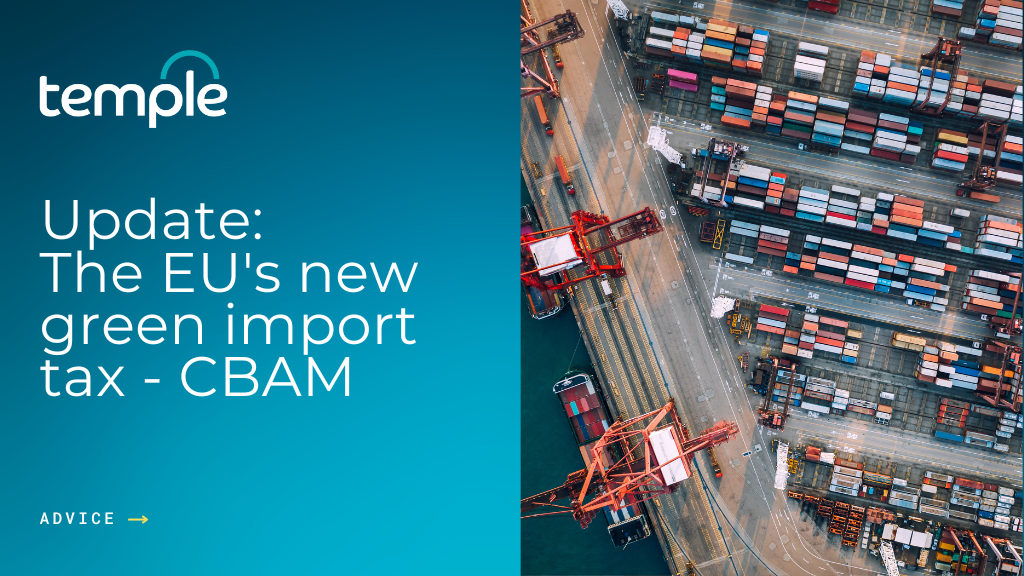
The PSTI Act, a new cyber security law in the UK, takes effect today.
The 29th of April 2024 is an important date for IoT manufacturers and anyone selling connected devices in the UK. This brand new and world-leading

Beginning in October, the Carbon Border Adjustment Mechanism (CBAM) will be implemented. Listed below are the latest developments for manufacturers exporting to the EU
On October 1, the EU will transition to the Carbon Border Adjustment Mechanism (CBAM).
As the world’s first carbon border tax, CBAM will initially apply to the following imported goods:
Cement
Iron and steel
Aluminium
Fertilisers
Electricity
Hydrogen
Business transfers operations overseas to areas with less stringent carbon emission regulations when these goods have high emissions levels and a greater risk of carbon leakage. Manufacturers are encouraged to make their products as green as possible.
Currently, most guidance is focused on EU companies importing goods, since they will be responsible for reporting. The purpose of this guidance is to facilitate dialogue with third countries. However, third countries – including the UK – will also need to provide emissions data to these companies.
The following comes from a European Commission Memo:
Non-EU producers should provide the information on embedded emissions for goods subject to CBAM to the EU-registered importers of their goods.
In cases where this information is not available at the time when the goods are being imported, EU importers will be able to use default values (even once the definitive system has kicked in) on CO2 emissions for each product to determine the number of certificates they need to purchase.
It is important for manufacturers to know which of these products they supply to EU businesses. Talking to them will also provide additional clarification.
In 2023, the transition will begin, and it will be completed by 2026. Canada and Japan are planning their own versions of CBAM.
It was discovered that 80 percent of the 733 SME respondents surveyed by the British Chambers of Commerce (BCC) were not aware of the upcoming reporting rules.
Commenting on the research, William Bain, head of trade policy at the BCC, said: “It is a serious worry that more than four out of five manufacturers who export have no knowledge of the EU’s new Carbon Border Adjustment Mechanism, which begins roll out in just over three weeks’ time.
“It is just the start of a series of changes, that will gradually ratchet up over the next three years.
“This is a very complex set of rules, the EU’s published guidance runs to more than 200 pages. It is likely manufacturers that export will have to think about allocating dedicated staff resources just to deal with these reporting requirements.”
He added that the BCC and Chambers will be pulling together as much information as possible to help businesses understand the changes.

The 29th of April 2024 is an important date for IoT manufacturers and anyone selling connected devices in the UK. This brand new and world-leading

Dave Treadwell, VSUK Quality Manager and subregion Coordinator for VSNE covering Holland and Germany, takes us through his experience of becoming a CQI Fellow and

Temple QMS is delighted to be supporting the roll out of new grant funding in the Shropshire region. We will be supporting SME manufacturing businesses

Global Compliance – Online event This presentation from Management Consultant Peter Lee, will be held 15 May 2024 – 19:00 – 19:45 CE and UKCA